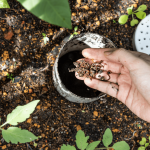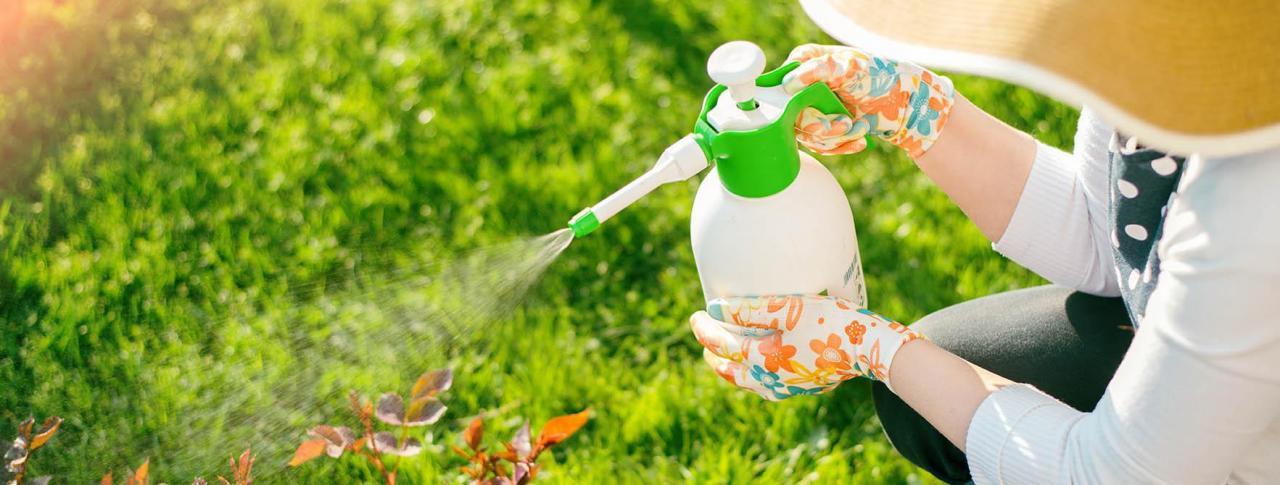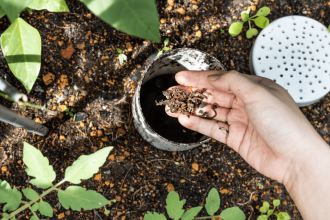In the whimsical world of organic gardening, maintaining a healthy and thriving garden ecosystem is key to success. One crucial aspect of this is managing pests in a way that respects the delicate balance of the natural world. In this article, we will explore some creative and effective natural pest control methods for your organic garden, allowing you to protect your plants without harming the environment. Join us on a journey through the intricate dance of gardening and sustainability, and discover how to harness the power of nature in keeping your garden free from harmful pests.

Methods to Attract Beneficial Insects
If you’re looking for a natural way to control pests in your organic garden, attracting beneficial insects is a great solution. These insects can help keep harmful pests in check without the need for chemical pesticides. Here are some effective to your garden:
- Plant Diversity: By planting a variety of flowers, herbs, and vegetables, you can attract a wide range of beneficial insects to your garden. Different insects are attracted to different plants, so a diverse garden will appeal to a larger number of beneficial species.
- Provide Shelter: Beneficial insects need shelter to rest, breed, and hide from predators. You can create habitat for them by adding mulch, rocks, and logs to your garden. You can also consider planting shrubs or installing insect hotels to provide additional shelter.
- Avoid Pesticides: Chemical pesticides can harm beneficial insects as well as harmful ones. To attract and retain beneficial insects in your garden, it’s important to avoid using pesticides. Instead, try natural pest control methods like companion planting and insect-repelling herbs.
Companion Planting for Pest Control
One effective way to naturally control pests in your organic garden is through companion planting. This method involves planting certain plants next to each other to benefit one another in various ways, such as repelling pests or attracting beneficial insects.
For example, planting marigolds next to your tomato plants can help repel nematodes, aphids, and whiteflies due to their strong scent. Similarly, planting basil near your tomatoes can help deter tomato hornworms. Herbs like mint, thyme, and oregano can also help repel pests such as ants, aphids, and cabbage moths.
Additionally, attracting beneficial insects like ladybugs, lacewings, and parasitic wasps can help control pest populations naturally. Plants such as dill, fennel, and yarrow can attract these beneficial insects to your garden, where they will feed on pests like aphids, caterpillars, and beetles.
Using Homemade Remedies to Deter Pests
One of the best ways to keep pests away from your organic garden is by using homemade remedies. These natural pest control methods are not only effective but also safe for the environment. Here are some DIY solutions that you can try to deter pests from your garden:
- Garlic Spray: Create a garlic spray by blending garlic cloves with water and straining the liquid. This spray can be used to repel common garden pests such as aphids, slugs, and beetles.
- Citrus Peels: Place citrus peels around your garden to keep ants and cats away. The strong scent of citrus is a natural deterrent for these pests.
- Diatomaceous Earth: Sprinkle diatomaceous earth around plants to keep harmful insects like ants, earwigs, and snails at bay. This substance is safe for plants but deadly for insects.
| Pest | Homemade Remedy |
|---|---|
| Aphids | Garlic Spray |
| Ants | Citrus Peels |
| Earwigs | Diatomaceous Earth |
By incorporating these natural pest control methods into your gardening routine, you can effectively ward off pests without using harmful chemicals. Not only will your garden remain organic, but you will also be promoting a healthy and sustainable environment for your plants to thrive.
Utilizing Predatory Animals for Pest Management
One of the most effective ways to manage pests in an organic garden is by utilizing predatory animals. These natural predators can help control unwanted pests without the need for harmful chemicals. By encouraging these animals to thrive in your garden, you can create a natural balance that keeps pest populations in check.
Some common predatory animals that can help with pest management include:
- Ladybugs: These colorful insects are voracious eaters of aphids, scale insects, and mites.
- Praying mantises: These carnivorous insects feed on a wide variety of garden pests, including caterpillars and beetles.
- Beneficial nematodes: These microscopic worms prey on insect larvae in the soil, effectively reducing pest populations.
By attracting and providing habitats for these natural predators, you can create a self-sustaining ecosystem in your garden that promotes biodiversity and reduces the need for chemical interventions. Consider planting a diverse range of flowers, herbs, and grasses to attract beneficial insects and provide shelter for predatory animals. With a little effort, you can harness the power of nature to manage pests in your organic garden.
As you tend to your organic garden, remember that there are plenty of natural pest control methods at your disposal. By encouraging beneficial insects, planting companion plants, and using homemade remedies, you can protect your garden without harming the environment. With a little creativity and patience, you can keep your plants thriving and pest-free in a truly organic way. Happy gardening!




















